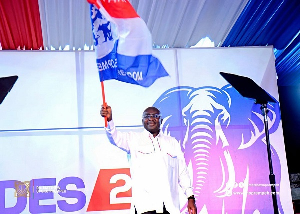The country is likely to lose some US$700 million in private sector investments under the Ghana Power Compact by the Millennium Challenge Corporation (MCC) which is intended to address challenges in power distribution, generation and access to energy, provide more reliable and affordable power to Ghanaian businesses and households.
Government on Saturday, October 19, made the decision to terminate the concessionaire agreement with Power Distribution Services Ltd (PDS) due to a careful legal review on the validity of demand guarantees after earlier rewarding the contract to Philippines based company, Meralco Consortium.
According to an earlier letter sent to government by the MCC, the country is also now likely to lose the second trench disbursement of US$190 million in funds set forth by the MCC for other projects under the compact agreement.
The MCC made an initial investment of up to US$308.2 million, including funding to put the Electricity Company of Ghana now PDS as the country’s main distribution company.
www.ghanaweb.com therefore, takes a look at some 6 main programmes under Ghana Power Compact the country risks losing due to the termination of the PDS deal:
Access Project
A projected total of US$10 million was invested in the Access Project which facilitates safe and legal access to reliable electricity in markets and economic enclaves in urban areas. Key interventions under this project were the replacement of electrical systems in market areas, the provision of security lighting, and a facilitation and capacity building process aimed at formalizing connections and strengthening local market and governance institutions.
Electricity Company of Ghana Financial and Operational Turnaround Project
A total amount of US$148 million dollars was invested by the MCC to support Ghana’s efforts to improve the management and efficiency of country’s largest state-owned electricity distribution utility by bringing in a private sector operator, making investments in systems at the corporate level to improve overall service quality.
Ghana may likely lose US$143 million in estimated net benefits at the termination of the deal.
Energy Efficiency and Demand Side Management Project
An amount of US$26 million was invested by the MCC in offsetting demand for electricity by developing improved or new efficiency standards for appliances, encouraging education and more efficient energy use among consumers, investing in more efficient Government buildings, and exploring demand side management measures, like converting streetlights to more efficient LED technology.
Ghana may likely to lose US$95,800,000 in estimated net benefits at the termination of the deal.
Northern Electric Distribution Company Financial and Operational Turnaround Project
The MCC supported government’s priority efforts to improve the management and service delivery capacity of the Northern Electric Distribution Company (NEDCo), the state-owned electricity utility serving the northern regions of Ghana. This project also supported these efforts by providing infrastructure investments and support for capacity building within the utility.
Ghana may likely lose US$1,400,000 million in estimated net benefits under this project.
Power Generation Sector Improvement Project
The Power Generation Sector Improvement Project works with key power sector stakeholders to improve the enabling environment around power generation, transmission and dispatch, including investment planning and sector regulation.
Ghana may likely lose US$624,700,000 in estimated net benefits under this project.
Regulatory Strengthening and Capacity Building Project
A total amount US$3,881,983 was invested by the MCC to ensure that Ghana’s electricity sector regulators, the Energy Commission and the Public Utilities Regulatory Commission, have the resources and capacity they need to ensure that power services are reliable, affordable and high quality. This project includes support for key tariff studies, technical assistance and capacity building.
Business News of Monday, 21 October 2019
Source: www.ghanaweb.com
Here’s what Ghana risks losing in PDS deal debacle
Entertainment












